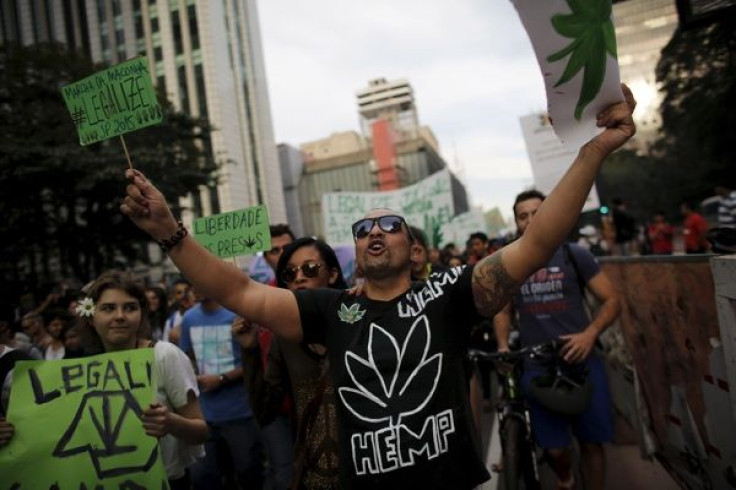Which States Will Legalize Marijuana Next? Texas And Virginia Consider Decriminalizing Pot

More than half of the United States allow marijuana use of some kind after voters in eight states passed legalization laws following the 2016 presidential election. Since then, cannabis advocates in other states have been pushing even harder for marijuana reform, and some states have already hopped on the legalization bandwagon and started considering making changes to weed laws in Texas, Virginia, Ohio and Tennessee.
Legislators in Texas filed several requests to decriminalize marijuana in the Lone Star state on Nov. 5, the first day of bill filling for the 2017 legislative season, according to reports. When state officials meet in Austin in January, they will consider reducing charges for marijuana possession and replacing them with a civil infraction, resulting in a $250 fine instead of jail time and a criminal record.
The state does offer medical marijuana for those suffering from intractable epilepsy and other chronic disease after passing the Compassionate Use Act in June 2015. However, those caught using or distributing marijuana without the proper identification can still face charges for carrying even the smallest amounts of weed.
Currently in Texas, persons found with less than two ounces of marijuana can face a misdemeanor charge and up to 180 days in jail. Perpetrators caught with between two and four ounces of pot may be sentenced to at least a year in jail, while those caught with more than four ounces of marijuana face felony charges and jail sentences between two and 99 years.
While states were voting to legalize medical and recreational laws on Election Day, decriminalization laws passed in several cities in Ohio. The state voted to reduce charges for marijuana possession, which will allow people caught with less than 200 grams of pot to avoid fines and jail time. Since the 1970s, people caught with more than 100 grams of weed faced misdemeanor charges, $250 fines and 30-days behind bars. Now residents in Bellaire, Logan, Newark and Roseville caught with marijuana will receive a ticketed offense without the chances of jail or a fine.
Decriminalization laws went into affect in Toledo a year ago, and Columbus is expected to make changes next. The state already has a medical marijuana program, which was inducted back in May. However, the medical laws have yet to actually take effect in the state.
In Tennessee, penalties in two cities have also been reduced. In October, Memphis adopted new ordinances allowing people to pay a $50 fine or perform community service if they’re caught with small amounts of pot instead of facing charges or jail time. The city’s decriminalization law came just one month after Nashville legislators made the same amendments to marijuana laws.
Tennessee could potentially continue their reform efforts and vote to legalize medical marijuana in some capacity when the 2017 legislative season starts. State Rep. Marc Gravitt told WDEF-Local 12 news recently that legislators were currently working a bill to legalize medical marijuana with hopes of combating the state’s opioid epidemic.
Virgina could be up for decriminalizing and potentially legalizing marijuana in 2017, as well. Gov. Terry McAuliffe has said in various interviews that he’d like to make medical marijuana legal for patients in 2017, and in early November, State Senate Majority Leader Tommy Norment told local news media that he hopes to propose a decriminalization bill by 2018 after having the Virginia Crime Commission conduct a study on the plant and it’s connection to crime within the state.
© Copyright IBTimes 2024. All rights reserved.












